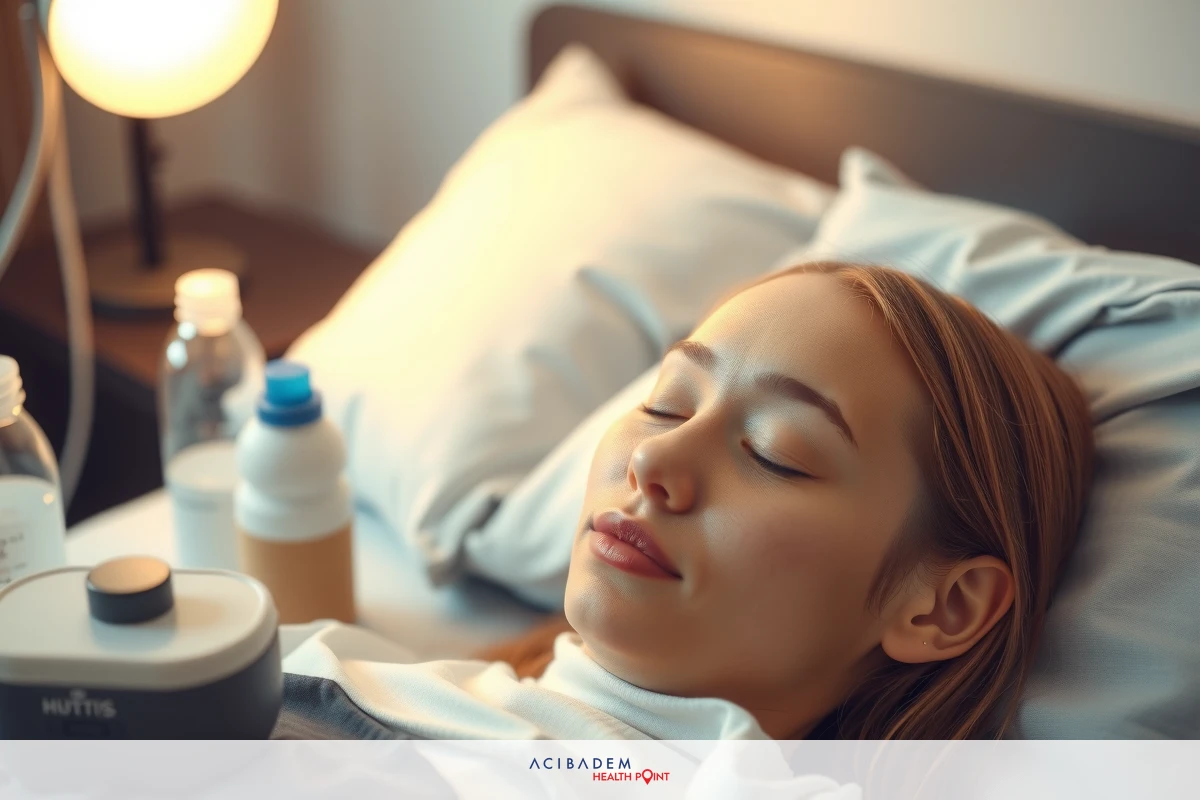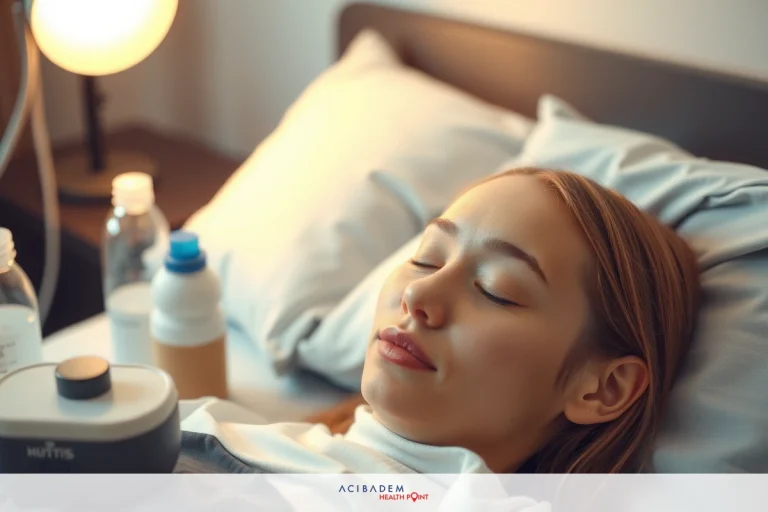How Long After Rhinoplasty Can I Breathe Through My Nose
How Long After Rhinoplasty Can I Breathe Through My Nose Rhinoplasty, or what is popularly referred to as a nose job, is a common type of plastic surgery aimed at reshaping or resizing the nose for aesthetic or functional reasons. One of the critical aspects that patients often wonder about is how long it will take for them to resume normal breathing through their nose post- surgery.
While the exact timeline can vary depending on several factors such as the complexity of the surgery, individual healing capacity, and adherence to post-operative care instructions, most patients can expect to start breathing comfortably through their nose within a few weeks. This article provide some practical tips for improving nasal breathing during the recovery period. Common concerns related to post-rhinoplasty breathing will also be discussed.
Recovery Timeline
The recovery timeline following a rhinoplasty procedure can vary widely from person to person, primarily due to factors such as the complexity of the operation and individual healing capacities. However, there are some general timelines that most patients can expect. In the first week post-rhinoplasty, breathing through the nose can be challenging due to swelling and the presence of nasal packing used to prevent bleeding. It’s crucial during this period to breathe through the mouth and keep the head elevated even while sleeping.
As you move into the second week post-rhinoplasty, breathing should start to improve gradually. The nasal packing is typically removed within a few days to a week after surgery, which allows for easier breathing. Swelling also begins to subside around this time, although it might still be noticeable. Some patients may experience dryness in their nose during this stage of recovery, which can be managed with saline sprays recommended by your surgeon.
By the third week after rhinoplasty, most patients notice a significant improvement in their ability to breathe through their nose. The internal swelling continues to decrease, and the nasal passages begin to clear up. It’s important to note that while you might be able to breathe more comfortably at this point, complete healing and full recovery can take several months. Therefore, patience is key throughout the recovery process following rhinoplasty. Remember that each person’s healing journey is unique, and it’s crucial not to compare your progress with others but rather focus on your own path towards recovery and improved nasal breathing.
Tips for Improving Nasal Breathing
Following a rhinoplasty procedure, patients often look for ways to improve their nasal breathing during the recovery period. While it’s essential to remember that healing is a process that takes time, there are some useful strategies that can help enhance your comfort and speed up the return of normal nasal breathing.
1. Keep Your Head Elevated: Especially in the first few days post-surgery, keeping your head elevated can significantly assist with reducing swelling and promoting better breathing. Use a couple of pillows to prop yourself up when sleeping or resting.
2. Stay Hydrated: Hydration is crucial during recovery as it helps keep the mucous membranes in your nose moist and reduces dryness which can interfere with breathing.
3. Use a Humidifier: Dry air can irritate your nasal passages and hinder your ability to breathe comfortably. Using a humidifier in your bedroom can help maintain moisture in the air and promote easier breathing.
4. Avoid Blowing Your Nose: After rhinoplasty, it’s usually advised to avoid blowing your nose for at least one week as this can disrupt the healing process and affect your breathing.

5. Follow Doctor’s Instructions: Adhering strictly to your surgeon’s post-operative care instructions is pivotal for a successful recovery and restoration of normal nasal breathing.
6. Utilize Saline Sprays: With your doctor’s approval, using saline sprays can help keep your nasal passages moist, reduce crusting, and improve breathing.
Remember, everyone’s recovery journey is unique, and these tips should be utilized as helpful guides rather than strict rules. Always consult with your doctor or medical professional before making any changes to your recovery regime.
How Long After Rhinoplasty Can I Breathe Through My Nose: Common Concerns
Many patients express common concerns related to breathing through the nose after rhinoplasty. One of these is the worry about not being able to breathe well or at all immediately after the procedure. It’s crucial to understand that this is a normal part of the recovery process. The nasal packing used to control bleeding and the swelling that naturally occurs after surgery can make breathing through the nose challenging in the initial days following rhinoplasty.
Another common concern is the fear of blowing the nose post-rhinoplasty. Patients are typically advised not to blow their nose for at least one week post-surgery, sometimes longer, depending on individual circumstances. Blowing your nose can cause pressure changes that can lead to bleeding or disruption of the healing tissues. Instead, if you feel the need to clear your nose, discuss this with your surgeon who can provide safe strategies such as gentle saline irrigation.
Dryness inside the nose is another common concern among patients recovering from rhinoplasty. This dryness can make breathing uncomfortable, but there are ways to manage it effectively. Regular use of saline sprays, with your doctor’s approval, can help keep the nasal passages moist and reduce crusting. If dryness persists or if you experience any other issues with nasal breathing during your recovery, don’t hesitate to reach out to your medical professional for advice and reassurance. Your comfort and safety during recovery are paramount, and addressing these concerns promptly can make your journey towards improved nasal breathing smoother.
Frequently Asked Questions
How long does it take to start breathing through my nose after rhinoplasty?
The timeline for being able to breathe comfortably through your nose after rhinoplasty can vary from person to person. Generally, patients can expect their nasal breathing to improve gradually within the first few weeks after the surgery. However, complete healing and full recovery can take several months.
Is it normal to experience difficulty breathing through my nose in the first few days after rhinoplasty?
Yes, it is entirely normal to experience difficulty breathing through your nose in the initial days following rhinoplasty. Swelling and the presence of nasal packing used during the surgery can obstruct airflow. It is important to follow your surgeon's instructions on keeping your head elevated and breathing through your mouth during this period.
Can I blow my nose after rhinoplasty?
It is generally advised to avoid blowing your nose for at least one week after rhinoplasty. Blowing your nose too soon can disrupt the healing process and potentially lead to complications such as bleeding or damage to the surgical site. If you need to clear your nose, consult with your surgeon for appropriate methods that won't jeopardize your recovery.
How can I manage dryness inside my nose during the recovery period?
Dryness inside the nose is a common concern after rhinoplasty. To manage this, you can use saline sprays recommended by your surgeon to keep the nasal passages moist. These sprays help reduce dryness and crusting while promoting comfortable breathing. However, it's important to consult with your doctor before using any products inside your nose during the recovery period.
When should I be concerned about my breathing difficulties after rhinoplasty?
While some degree of difficulty breathing through the nose is expected during the initial stages of recovery, if you experience severe or worsening breathing difficulties, excessive bleeding, intense pain, or any other concerning symptoms, it is important to contact your surgeon immediately. They can evaluate your situation and provide appropriate guidance and support.











